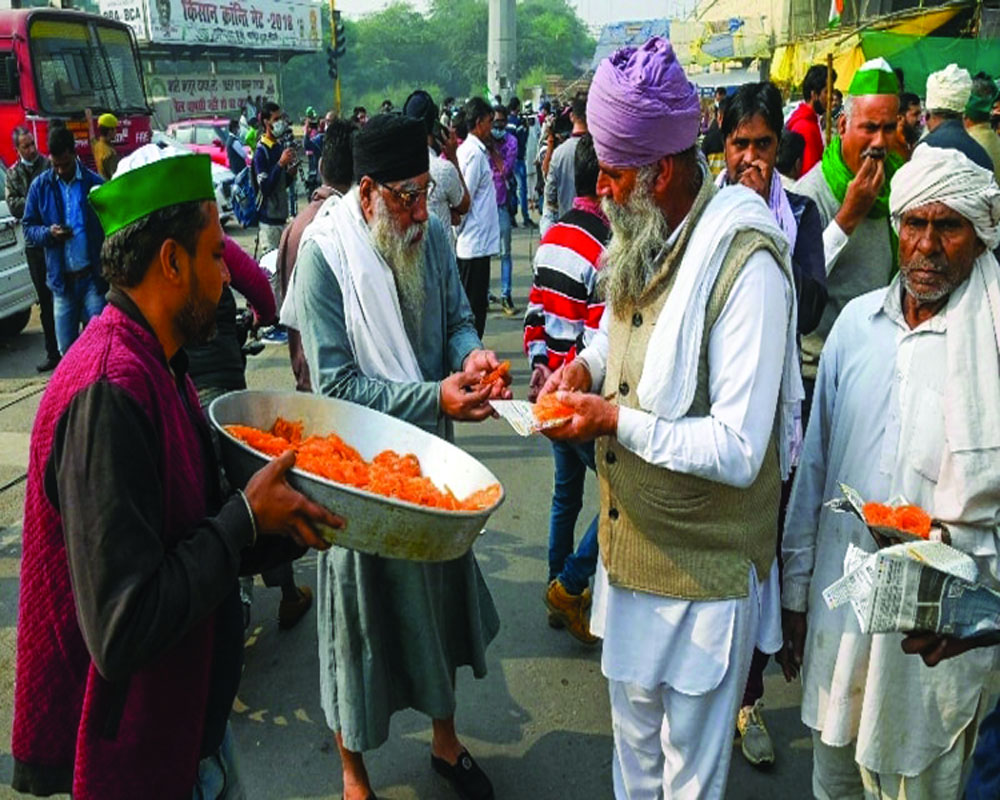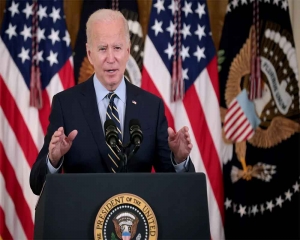The arthiyas, large farmers and traders have successfully protected their turf while small farmers, who constitute the overwhelming majority, have lost
On November 19, 2021, announcing his Government’s decision to repeal the contentious three farm laws, Prime Minister Narendra Modi apologized for not being able to convince a section of the farmers about the benefits that these laws would bring them. Are these laws so complex as to become incomprehensible to the farmer?
The “Situation Assessment of Agricultural Households and Land and Livestock Holdings of Households in Rural India”, SAS in short, released by the National Statistical Office (NSO), covering the period July 2018 to June 2019, reveals widespread dissatisfaction among farmers with the price realized from sale of their produce. Their highest dissatisfaction is with sales in the Agricultural Produce Market Committee or APMCs mandi (marketplace notified under the State APMC Act) followed by sales ‘private local market’. Nearly 83 percent farmers sell their produce in these two outlets.
The low price from sale in APMC has to do with extant State laws under which farmers can sell their produce only in the ‘designated’ mandi. In the mandi, the arthiyas — local term for commission agents — arrange for the auction and delivery of the produce. They and the licensed trader/buyer rule the roost. The duo ensure that the farmers get a low price and even then faces problems like rejection of crop, crop deliberately weighed less, payments delayed, etc. Levies such as market fee, arthiyas’ commission and rural development cess (RDC) further add to their woes.
As for sales in the private local market, though legally it is barred, small farmers who normally donot have access to the APMC are forced to sell to the very traders who dominate the mandi and at throwaway prices. The latter have the blessings of corrupt bureaucrats and politicians and hence, do not face any action for violating the State law.
In short, under the existing State APMC laws, farmers face a raw deal. The only way they can get a fair deal is to give them a chance to sell in other outlets. In the past, States had made some moves in this direction: 20 States have allowed contract farming; 23 States allow ‘direct purchase’ from farmers; 22 States/UTs allow private wholesale markets, while 15 have excluded fruits and vegetables from the APMC Act. These are piecemeal efforts and are far from giving unfettered access especially to small farmers who account for over 80 per cent of the total. The three central laws fill the existing void as these legitimize sales on all non-APMC platforms without disturbing the APMC mandis.
There is nothing in these laws that farmers do not understand. Even if there was anything that was too complex, that must have been understood during the marathon talks the Union ministers had with them. The latter had even agreed to make several amendments as demanded by the former. Besides showing willingness to make more amendments, the Prime Minister went a step ahead to offer to defer implementation of the laws for a period of up to two years.
Despite so much accommodation shown by the establishment, if the farmers’ leaders wanted nothing less than ‘repeal’, it has to do with the stony desire of a certain class of farmers (those with large land holdings) from Punjab and Haryana and the arthiyas to maintain their dominance in sale and purchase and keep potential competition from other entities at bay.
The central agencies procure 30 percent of wheat and rice produced in the country albeit at the minimum support price (MSP). Nearly 30 percent of wheat production comes from Punjab and Haryana whereas in rice, their share is 14 percent. However, in their total procurement, the agencies pick up 60 percent of wheat and 35 percent of rice from these two states alone. Furthermore, almost all of this comes from large farmers. This class of farmers apprehends, if the field is opened for all, they will lose this privilege.
As for arthiyas, they too have a vested interest in protecting their commission as well as exercising control over the small farmers. If the latter get a chance to sell at non-APMC outlets, the former will lose control over what we may term as the golden goose (taking grains from the small farmers at throwaway price and making a windfall by selling at high rates; they also lend money to those very farmers at high rates and earn huge interest income).
The arthiyas and big farmers and traders have succeeded in protecting their turf even as the small farmers who constitute the overwhelming majority have lost. A collateral damage is in terms nipping in the bud any chance of increasing private investment in agri-infrastructure — a pre-requisite for ensuring sustainable growth of this most crucial sector. This is baffling but it has happened. Here are the plausible reasons.
First, while staying implementation of the laws in January, 2021, the Supreme Court had set up a Committee to recommend the way forward after consulting all stakeholders including farmers. In its report submitted in March, 2021, the Committee reportedly favored the three laws. But the court has kept the issue hanging.
Second, in public discourse, the farmers are projected as a homogenous entity, without recognizing the vast disparity between the large and small farmers in terms of assets, income, etc. This enables the large farmers to call the shots.The small farmers being unorganized, their voice is not even heard.
Third, the big farmer/trader lobby has also succeeded in obfuscating the issues. For instance, they aver ‘a wheat farmer receives just about half the MSP of Rs 1975 per quintal’ thereby signaling that this is what the Centre’s laws have delivered. The reality is that ‘the laws are not even in force, courtesy the stay granted by the SC’.
Four, they have managed to distract the attention of small farmers from the ‘real cause’ behind their plight namely the oppressive State APMC laws and making them believe that MSP guaranteed by a Central law is a panacea for all their woes.
To conclude, with the repeal of the three laws, agri-market reforms have reached a dead end. There is no hope of resurrecting these in the near term (a Committee set up by Modi to see ‘how MSP can be made more effective’ is a sheer cosmetic). Meanwhile, in view of farmers’ leaders raising more demands and Government being on the defensive, the country could be entering a dangerous zone.
A legal guarantee for MSP has the potential of making the national exchequer bankrupt, overstraining the handling and storage facilities, increasing wastage manifold and embarrassing India at the WTO as food subsidy (albeit trade distorting) to farmers balloons. The exemption for farmers from the Electricity (Amendment) Act will lead to bleeding power distribution companies and ever-increasing stress on State finances. Their exemption from laws on climate will not only add to pollution but also send a wrong signal to the world community.
Will Modi muster the courage to stem the slide?
(The writer is a policy analyst. The views expressed are personal.)


























